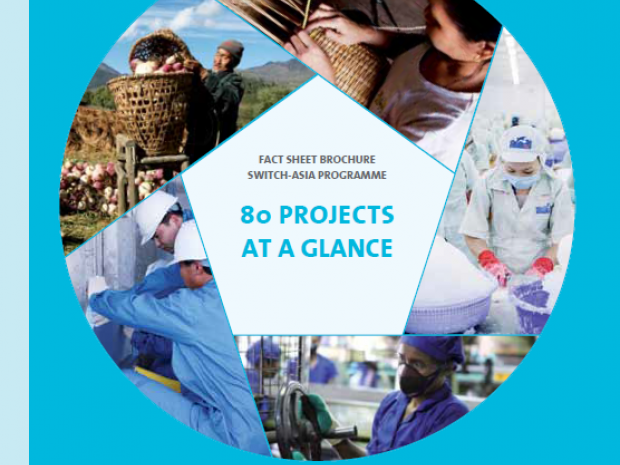Switch Asia Programme - Fact Sheet Brochure 2014

Asia has become the world’s main manufacturing region and has an estimated thirty million small and medium-sized enterprises (SMEs) making up about 80% of industry. These companies have now the opportunity to grow their businesses by adapting less polluting technologies and practices, leaving the old paradigm of “grow first, clean up later”. Making a switch to sustainable patterns of production benefits the environment, society and the economy. Take-up of environmentally friendly practices benefits the poor via preserving their health and livelihoods. Saving natural resources leads to economic benefits like reduction of operating costs. Not only small businesses, but also their customers such as the fast growing middleincome consumers hold the opportunity to embark on environmental friendly behavior. They can achieve better living standards, health benefits and, at the same time preserve precious natural resources. Indeed, achievement of economic prosperity in the long-term is tightly linked to the environmental, social and economic aspects of development.
Consequently, the European Union (EU) has made the issue of ‘sustainable consumption and production’ a priority in its regional cooperation strategy for Asia in 2007-2013 as well in 2014-2020. Already in 2008 the European Commission launched SWITCH-Asia programme promoting sustainable consumption and production patterns to help interested consumers, businesses, and supporting associations switch to a more sustainable paradigm.
Log in with your EU Login account to post or comment on the platform.